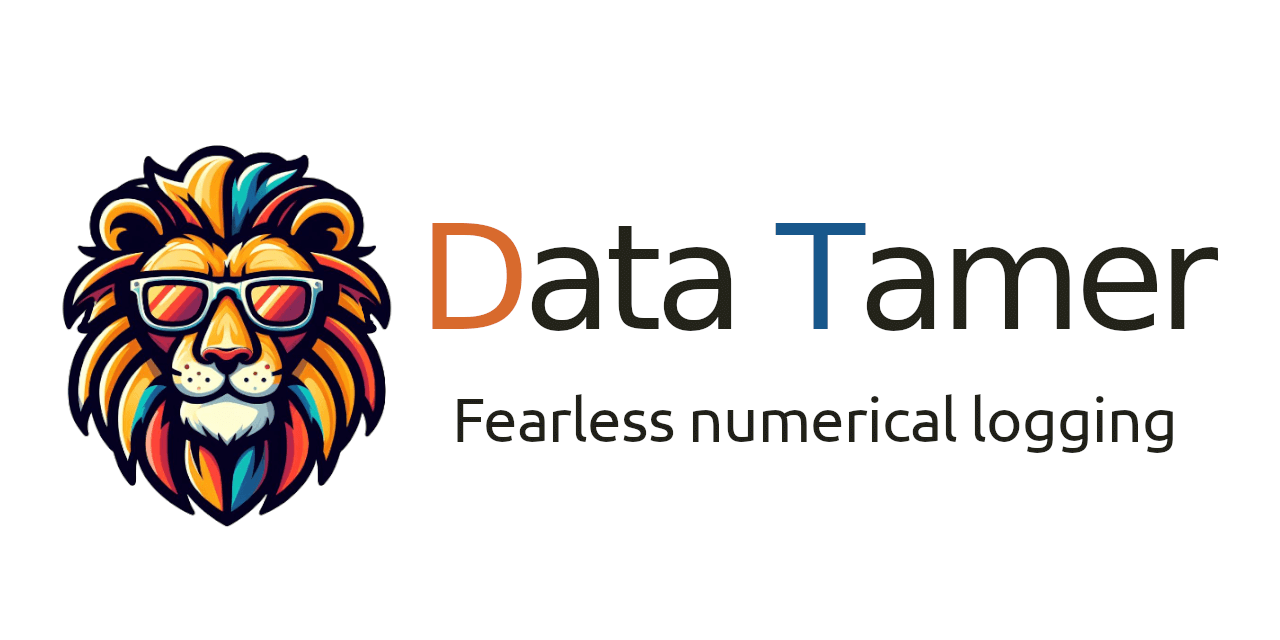When we talk about "logging", most of the time we refer to human-readable messages (strings) with different severity levels (INFO, ERROR, DEBUG, etc.), being displayed in the console or saved into a file.
DataTamer solves a different problem: it logs/traces numerical values over time and takes periodic "snapshots" of these values, to later visualize them as timeseries.
As such, it is a great complement to PlotJuggler, the timeseries visualization tool (note: you will need PlotJuggler 3.8.2 or later).
DataTamer is your "fearless" C++ library to log numerical data because you can easily track hundreds or thousands of variables: even 1 million points per second should have a negligible CPU overhead.
Since all the values are aggregated in a single "snapshot", it is particularly suited to record data in a periodic loop (a very frequent use case in robotics applications).
Kudos to pal_statistics, for inspiring this project.
DataTamer can be used to monitor multiple variables in your applications.
Channels are used to take "snapshots" of a subset of variables at a given time. If you want to record at different frequencies, you should use different channels.
DataTamer will forward this data to 1 or multiple Sinks; a sink may save the information in a file (currently, we support MCAP) or publish it using an inter-process communication (for instance, a ROS2 publisher).
You can create your own sinks, if you want.
You can use PlotJuggler to visualize your logs offline or in real-time.
- Serialization schema is created at run-time: no need to do code generation.
- Suitable for real-time applications: very low latency (on the side of the callee).
- Multi-sink architecture: recorded data can be forwarded to multiple "backends".
- Very low serialization overhead, in the order of 1 bit per traced value.
- The user can enable/disable traced variables at run-time.
- Traced variables can not be added (registered) once the recording starts.
- Focused on periodic recording. Not the best option for sporadic, asynchronous events.
- If you use
DataTamer::registerValueyou must be careful about the lifetime of the object. If you prefer a safer RAII interface, useDataTamer::createLoggedValueinstead.
#include "data_tamer/data_tamer.hpp"
#include "data_tamer/sinks/mcap_sink.hpp"
int main()
{
using namespace DataTamer;
// Multiple channels can use this sink.
// Data will be saved in mylog.mcap
auto mcap_sink = std::make_shared<MCAP>("mylog.mcap");
// Create a channel
auto channel = LogChannel::create("my_channel");
channel->addDataSink(dummy_sink);
// You can register any arithmetic value. You are responsible for their lifetime
double value_real = 3.14;
int value_int = 42;
auto id1 = channel->registerValue("value_real", &value_real);
auto id2 = channel->registerValue("value_int", &value_int);
// If you prefer to use RAII, use this method instead
// logged_real will disable itself when it goes out of scope.
auto logged_float = channel->createLoggedValue<float>("my_real");
// This is the way you store the current snapshot of the values
channel->takeSnapshot();
// You can disable (i.e., stop recording) a value
channel->setEnabled(id1, false);
// or
logged_float->setEnabled(false);
// The serialized data of the next snapshot will contain
// only [value_int], i.e. [id2], since the other two were disabled
channel->takeSnapshot();
}Just use colcon :)
Note that th ROS2 publisher will NOT be built when using this method.
Assuming conan 2.x installed. From the source directory.
Release:
conan install . -s compiler.cppstd=gnu17 --build=missing -s build_type=Release
cmake -S . -DCMAKE_BUILD_TYPE=Release \
-DCMAKE_TOOLCHAIN_FILE="build/Release/generators/conan_toolchain.cmake"
cmake --build build/Release/ --parallel
Debug:
conan install . -s compiler.cppstd=gnu17 --build=missing -s build_type=Debug
cmake -S . -DCMAKE_BUILD_TYPE=Debug \
-DCMAKE_TOOLCHAIN_FILE="build/Debug/generators/conan_toolchain.cmake"
cmake --build build/Debug/ --parallel

